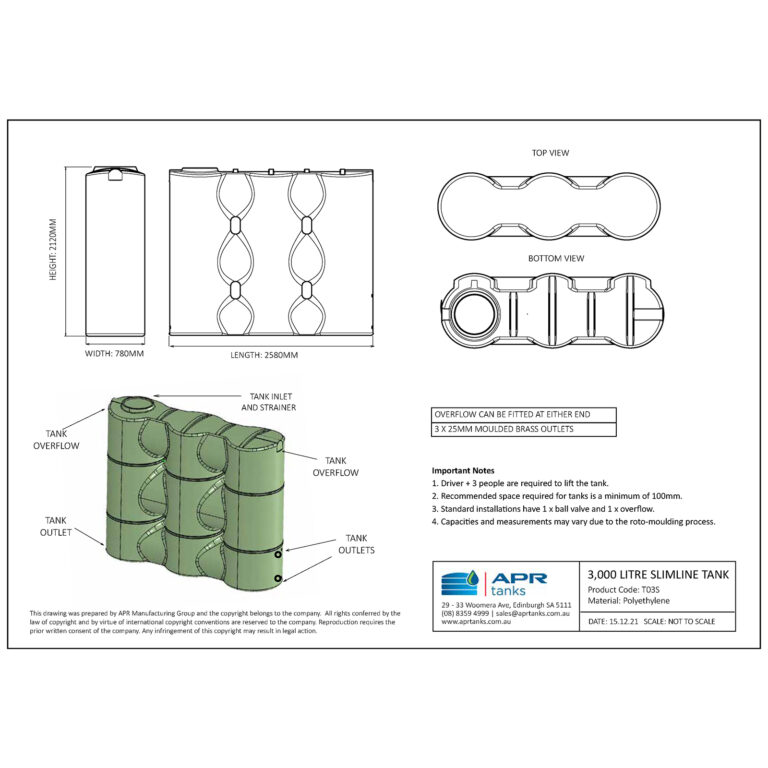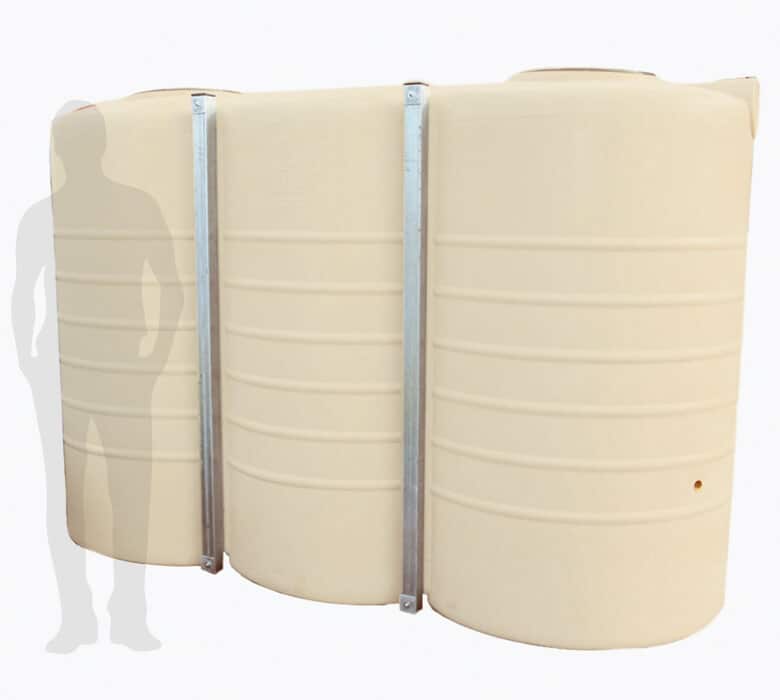Slimline Water Tanks: Space-Saving Solutions for Little Residences
Wiki Article
Exploring the Numerous Uses of Rainwater Tanks for Residential and Commercial Qualities
As the global focus on sustainable living methods continues to magnify, the use of rain tanks in both domestic and commercial setups has actually emerged as a significant service. The diverse usages of rain storage tanks provide a compelling instance for their fostering, not only as a sensible water-saving measure however also as a testimony to liable source management.Advantages of Making Use Of Rainwater Containers
Utilizing rain tanks offers numerous advantages for both households and neighborhoods in terms of water conservation and sustainability. One of the crucial advantages of using rain containers is the significant decrease in reliance on mains water system - Slimline water tanks. By recording and keeping rain for later use, people and areas can lower their need for cured water, eventually alleviating the burden on water treatment facilities and decreasing power usage connected with water transportation and treatment
Additionally, rainwater collecting via tanks gives a dependable alternative water resource throughout times of water restrictions or scarcities. This saved rainwater can be utilized for various non-potable objectives such as watering, purging toilets, and washing clothing, reducing the stress on traditional water resources. In addition, utilizing rain tanks can bring about set you back financial savings for both families and communities by lowering water expenses and lowering the demand for pricey framework growths to satisfy growing water demands.
Basically, the application of rain tanks uses a lasting and eco friendly method to water administration, profiting both specific users and the broader community in terms of water conservation, cost-efficiency, and resilience.
Rainwater Storage Tank Usage in Watering
Provided the advantages of rain containers in preserving water sources and lowering dependence on keys water, a significant application lies in utilizing stored rainwater for irrigation purposes - Slimline water tanks. Rainwater collecting systems can properly accumulate and save rainwater, providing a sustainable water resource for sprinkling yards, grass, and farming fields. By utilizing rainwater for watering, homeowner can reduce their dependancy on cured water sources, resulting in set you back financial savings and ecological benefits
Among the main benefits of making use of rainwater for irrigation is its pureness. Rainwater is naturally soft and without the chemicals and additives usually found in mains water, making it ideal for beneficial plants without the risk of hazardous effects. Additionally, rain goes to ambient temperature, which can profit plant development by avoiding temperature shocks that can occur with cool mains water.
Rainwater Containers for Toilet Flushing

Applying rain storage tanks for toilet flushing is a cost-efficient and eco-friendly method that can be easily incorporated into both property and industrial homes. The stored rainwater can be made use of internet to flush toilets by attaching the container to the existing plumbing system. This simple yet reliable option can considerably decrease water intake in a building, particularly in locations where water scarcity is a concern.

Integrating Rainwater Tanks in Landscaping
These tanks can capture and save rainwater drainage from roofing systems, which can then be made use my review here of for sprinkling yards, yards, and plants. By using rainwater for irrigation purposes, property owners can decrease their dependence on metropolitan water sources, leading to set you back savings and conservation of valuable water sources.In addition to supplying a sustainable water resource for landscaping needs, rain tanks can also aid in managing stormwater drainage. By capturing rain that would otherwise move into storm drains pipes, these containers can reduce erosion, decrease flooding dangers, and protect against pollution of natural water bodies. Incorporating rainwater storage tanks in landscape design can add to the total visual allure of the property, showcasing a commitment to environmental stewardship.
Commercial Applications of Rainwater Tanks
Using rainwater storage tanks in industrial settings provides a sustainable service for browse around here water administration and conservation, benefiting companies and the atmosphere alike. Industrial applications of rainwater tanks vary and increasingly popular due to the cost financial savings and environmental advantages they provide. One crucial industrial use is for irrigation objectives, where collected rain can be utilized to water landscaping, gardens, and farming areas bordering industrial homes. This can result in significant reductions in water bills and dependence on local water resources.In addition, rainwater collected in storage tanks can be dealt with and made use of for non-potable purposes within industrial residential properties, such as flushing toilets, cleaning, and cooling down systems. On the whole, the consolidation of rainwater tanks in commercial setups provides a useful and ecologically responsible method to water administration.
Final Thought
Finally, rainwater tanks supply numerous benefits for both domestic and industrial residential properties. From watering to commode flushing and landscape design, the usage of rain containers can aid preserve water sources and lower water costs. In addition, including rain storage tanks in industrial settings can result in significant cost financial savings and ecological advantages. Generally, the adaptability and sustainability of rain storage tanks make them an important investment for any kind of residential or commercial property owner looking to raise water performance.Report this wiki page